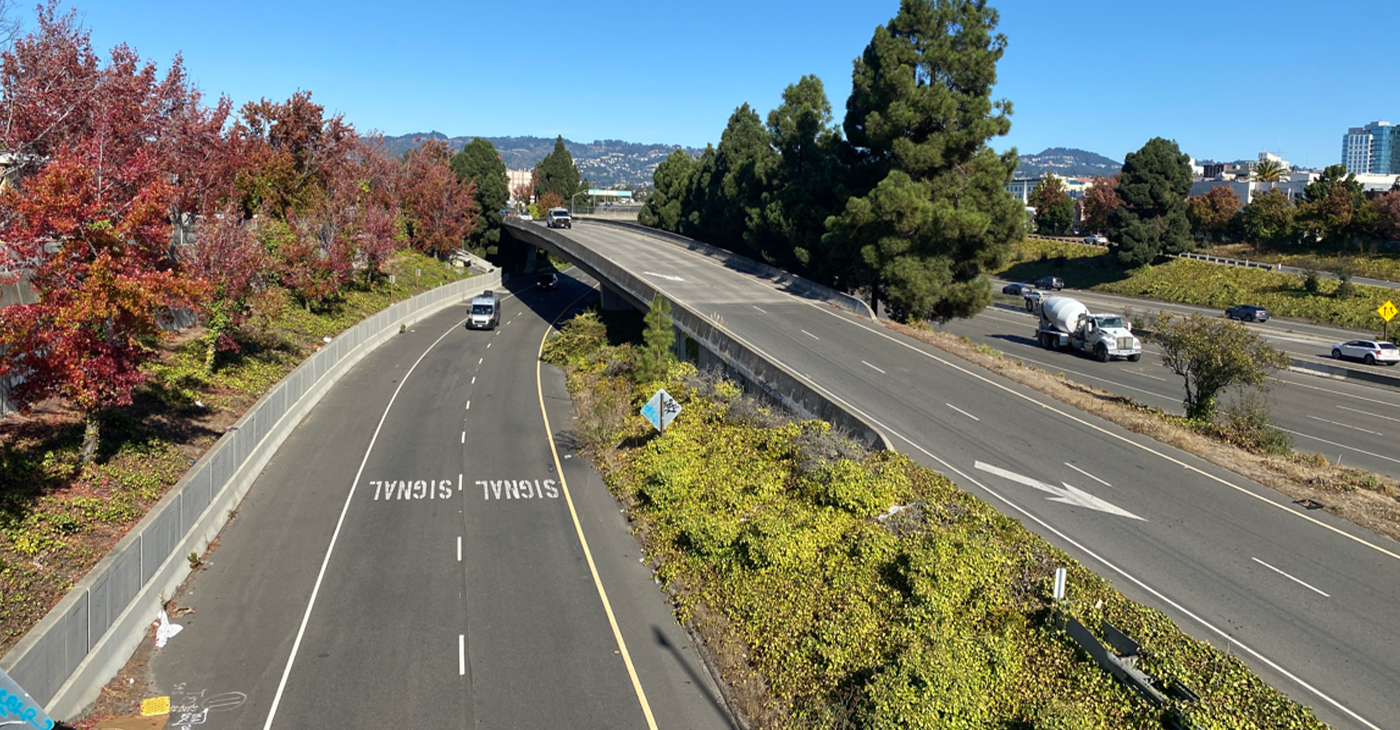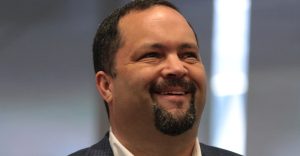Economy
MTSU Proud of its Long Service to Low-Income Students
THE TENNESSEE TRIBUNE — MTSU President Sidney A. McPhee, in a note to university community Friday, underscored MTSU’s standing as a destination of choice for first-generation students and its long success in helping low-income students who meet admission standards overcome obstacles often posed by tuition and fees.
MURFREESBORO, TN — MTSU President Sidney A. McPhee, in a note to university community Friday, underscored MTSU’s standing as a destination of choice for first-generation students and its long success in helping low-income students who meet admission standards overcome obstacles often posed by tuition and fees.
McPhee’s message follows an announcement by the University of Tennessee System that students eligible for Pell Grant aid (family income of $50,000 or less), and who qualify for the HOPE Lottery Scholarship, can attend one of their institutions without paying tuition or mandatory fees.
“I’m proud to say that MTSU students in this category have attended our institution for years without paying tuition or mandatory fees,” McPhee said. “Our Admissions and Financial Aid teams are among the best at helping our low-income students qualify for the full range of federal and state scholarships and assistance.”
He said about 50 percent of MTSU’s student population receives Pell aid; about 30 percent of UT-Knoxville’s population receives Pell aid.
“That’s why we are a destination of choice for first-generation college students,” McPhee said. “And we’ve done all of this while raising our admissions standards and setting records on average ACT scores of our incoming freshmen.”
McPhee also cited a recent New York Times database, the median family income of a student from Middle Tennessee State is $71,700, and 25 percent come from the top 20 percent of income strata. According to the same database, the median family income of a student from UT-Knoxville is $96,900, and 42 percent come from the top 20 percent.
And he said MTSU’s full-time undergraduate tuition and fees of $9,206 for the Fall 2018 and Spring 2019 semesters remains the lowest of the state’s three largest universities. University of Tennessee-Knoxville charges $13,006, while the University of Memphis charges $9,701.
“Our affordability makes MTSU more accessible to students from all income levels seeking a top-tier educational experience,” he said.
McPhee also noted that MTSU recently “substantially increased the value and broadened eligibility of our Presidential Scholarship, which more than doubled the amount we awarded to some high-ability freshmen who will enroll this fall.”
“We at MTSU are pleased that UT has joined our university in expressing its commitment to serving the higher education needs of the state’s at-risk students,” he said.
This article originally appeared The Tennessee Tribune.
Activism
Past, Present, Possible! Oakland Residents Invited to Reimagine the 980 Freeway
Organizers ask attendees coming to 1233 Preservation Park Way to think of the event as a “time portal”—a walkable journey through the Past (harm and flourishing), Present (community conditions and resilience), and Future (collective visioning).

By Randolph Belle
Special to The Post
Join EVOAK!, a nonprofit addressing the historical harm to West Oakland since construction of the 980 freeway began in 1968, will hold a block party on Oct. 25 at Preservation Park for a day of imagination and community-building from 10 a.m. to 4 p.m.
Organizers ask attendees coming to 1233 Preservation Park Way to think of the event as a “time portal”—a walkable journey through the Past (harm and flourishing), Present (community conditions and resilience), and Future (collective visioning).
Activities include:
- Interactive Visioning: Site mapping, 3-D/digital modeling, and design activities to reimagine housing, parks, culture, enterprise, and mobility.
- Story & Memory: Oral history circles capturing life before the freeway, the rupture it caused, and visions for repair.
- Data & Policy: Exhibits on health, environment, wealth impacts, and policy discussions.
- Culture & Reflection: Films, installations, and performances honoring Oakland’s creativity and civic power.
The site of the party – Preservation Park – itself tells part of the story of the impact on the community. Its stately Victorians were uprooted and relocated to the site decades ago to make way for the I-980 freeway, which displaced hundreds of Black families and severed the heart of West Oakland. Now, in that same space, attendees will gather to reckon with past harms, honor the resilience that carried the community forward, and co-create an equitable and inclusive future.
A Legacy of Resistance
In 1979, Paul Cobb, publisher of the Post News Group and then a 36-year-old civil-rights organizer, defiantly planted himself in front of a bulldozer on Brush Street to prevent another historic Victorian home from being flattened for the long-delayed I-980 Freeway. Refusing to move, Cobb was arrested and hauled off in handcuffs—a moment that landed him on the front page of the Oakland Tribune.
Cobb and his family had a long history of fighting for their community, particularly around infrastructure projects in West Oakland. In 1954, his family was part of an NAACP lawsuit challenging the U.S. Post Office’s decision to place its main facility in the neighborhood, which wiped out an entire community of Black residents.
In 1964, they opposed the BART line down Seventh Street—the “Harlem of the West.” Later, Cobb was deeply involved in successfully rerouting the Cypress Freeway out of the neighborhood after the Loma Prieta earthquake.
The 980 Freeway, a 1.6-mile stretch, created an ominous barrier severing West Oakland from Downtown. Opposition stemmed from its very existence and the national practice of plowing freeways through Black communities with little input from residents and no regard for health, economic, or social impacts. By the time Cobb stood before the bulldozer, construction was inevitable, and his fight shifted toward jobs and economic opportunity.
Fast-forward 45 years: Cobb recalled the story at a convening of “Super OGs” organized to gather input from legacy residents on reimagining the corridor. He quickly retrieved his framed Tribune front page, adding a new dimension to the conversation about the dedication required to make change. Themes of harm repair and restoration surfaced again and again, grounded in memories of a thriving, cohesive Black neighborhood before the freeway.
The Lasting Scar
The 980 Freeway was touted as a road to prosperity—funneling economic opportunity into the City Center, igniting downtown commerce, and creating jobs. Instead, it cut a gash through the city, erasing 503 homes, four churches, 22 businesses, and hundreds of dreams. A promised second approach to the Bay Bridge never materialized.
Planning began in the late 1940s, bulldozers arrived in 1968, and after years of delays and opposition, the freeway opened in 1985. By then, Oakland’s economic engines had shifted, leaving behind a 600-foot-wide wound that resulted in fewer jobs, poorer health outcomes, and a divided neighborhood. The harm of displacement and loss of generational wealth was compounded through redlining, disinvestment, drugs, and the police state. Many residents fled to outlying cities, while those who stayed carried forward the spirit of perseverance.
The Big Picture
At stake now is up to 67 acres of new, buildable land in Downtown West Oakland. This time, we must not repeat the institutional wrongs of the past. Instead, we must be as deliberate in building a collective, equitable vision as planners once were in destroying communities.
EVOAK!’s strategy is rooted in four pillars: health, housing, economic development, and cultural preservation. These were the very foundations stripped away, and they are what they aim to reclaim. West Oakland continues to suffer among the worst social determinants of health in the region, much of it linked to the three freeways cutting through the neighborhood.
The harms of urban planning also decimated cultural life, reinforced oppressive public safety policies, underfunded education, and fueled poverty and blight.
Healing the Wound
West Oakland was once the center of Black culture during the Great Migration—the birthplace of the Black Panther Party and home to the “School of Champions,” the mighty Warriors of McClymonds High. Drawing on that legacy, we must channel the community’s proud past into a bold, community-led future that restores connection, sparks innovation, and uplifts every resident.
Two years ago, Caltrans won a federal Reconnecting Communities grant to fund Vision 980, a community-driven study co-led by local partners. Phase 1 launched in Spring 2024 with surveys and outreach; Phase 2, a feasibility study, begins in 2026. Over 4,000 surveys have already been completed. This once-in-a-lifetime opportunity could transform the corridor into a blank slate—making way for accessible housing, open space, cultural facilities, and economic opportunity for West Oakland and the entire region.
Leading with Community
In parallel, EVOAK! is advancing a community-led process to complement Caltrans’ work. EVOAK! is developing a framework for community power-building, quantifying harm, exploring policy and legislative repair strategies, structuring community governance, and hosting arts activations to spark collective imagination. The goal: a spirit of co-creation and true collaboration.
What EVOAK! Learned So Far
Through surveys, interviews, and gatherings, residents have voiced their priorities: a healthy environment, stable housing, and opportunities to thrive. Elders with decades in the neighborhood shared stories of resilience, community bonds, and visions of what repair should look like.
They heard from folks like Ezra Payton, whose family home was destroyed at Eighth and Brush streets; Ernestine Nettles, still a pillar of civic life and activism; Tom Bowden, a blues man who performed on Seventh Street as a child 70 years ago; Queen Thurston, whose family moved to West Oakland in 1942; Leo Bazille who served on the Oakland City Council from 1983 to 1993; Herman Brown, still organizing in the community today; Greg Bridges, whose family’s home was picked up and moved in the construction process; Martha Carpenter Peterson, who has a vivid memory of better times in West Oakland; Sharon Graves, who experienced both the challenges and the triumphs of the neighborhood; Lionel Wilson, Jr., whose family were anchors of pre-freeway North Oakland; Dorothy Lazard, a resident of 13th Street in the ’60s and font of historical knowledge; Bishop Henry Williams, whose simple request is to “tell the truth,” James Moree, affectionately known as “Jimmy”; the Flippin twins, still anchored in the community; and Maxine Ussery, whose father was a business and land owner before redlining.
EVOAK! will continue to capture these stories and invites the public to share theirs as well.
Beyond the Block Party
The 980 Block Party is just the beginning. Beyond this one-day event, EVOAK! Is building a long-term process to ensure West Oakland’s future is shaped by those who lived its past. To succeed, EVOAK! Is seeking partners across the community—residents, neighborhood associations, faith groups, and organizations—to help connect with legacy residents and host conversations.
980 Block Party Event Details
Saturday, Oct. 25
10 a.m. – 4 p.m.
Preservation Park, 1233 Preservation Park Way, Oakland, CA 94612
980BlockParty.org
info@evoak.org
Activism
Prescribing Prevention: Doctors Turn to Lifestyle, Herbs and Veggies to Protect Against Chronic Illness in Black Californians

By Charlene Muhammad, California Black Media
Leibo Glover received his diabetes diagnosis at the same time he found out he needed a below-the-knee amputation.
“Minor,” thought the 63-year-old.
Glover had been self-medicating a toe injury before seeing the doctor.
But while driving from South Los Angeles to Miami on a family trip, an infection set in.
“I had it but didn’t know,” said Glover. “I was just going to come back to California, but they told me if I had left, I would have come home as a corpse,” Glover told California Black Media (CBM).
A majority of the nearly 3.5 million Californians diagnosed with diabetes have preventable Type 2 diabetes, according to researchers at the UCLA Center for Health Policy Research.
In 2023, diabetes was diagnosed in 1 in 6 adults with the lowest incomes (16.7% at 0–99% of the federal poverty line), compared to 1 in 11 adults with the highest incomes (8.9% at 300% or more of the federal poverty line). Age is a factor, too: more than 1 in 5 older adults age 65 and over (22.3%) had diabetes, about twice the rate of adults age 18–64 (8.6%).
Another study by Health Economics and Evaluation Research (HEER) mapped patients with diabetes in California who had amputations. Researchers found that patients living in low-income ZIP codes were far more likely to have had lower-limb amputations than those in higher-income ZIP codes, essentially identifying amputation “hot spots.”
At the time of Glover’s 2018 diagnosis, he was experiencing housing instability and going through financial hardships. Now, he has more stable housing and he has improved his health through lifestyle changes like eating healthier and getting more sleep.
“If the equipment is right, I can stand on my leg for hours. I can actually run, jump, dance and all of that,” said Glover, who got his diabetes under control, in part, by avoiding carbohydrates and sugars.
As chronic illnesses continue to disproportionately impact Black Californians — often leading to preventable amputations and premature deaths — a growing number of doctors and advocates are expanding their care from just treatment to including prevention. From promoting diet and lifestyle changes to cultivating community farms focused on prevention and wellness like Dr. Bill Releford’s Bloom Ranch in Acton.
Releford, a podiatrist based in Los Angeles started the 250-acre Bloom Ranch in 2023 as part of his strategy for preventive care.
“This is my assignment,” said Releford.
“Bloom Ranch has been a perfect backdrop for me to be creative and to find avant-garde ways to make fresh fruits and vegetables more accessible to food deserts in Los Angeles County,” he stated.
California produces nearly half of the nation’s fruits and vegetables, yet more than 1 in 5 Californians — about 8.8 million people — currently struggle with food insecurity, according to the California Association of Food Banks.
“Studies have shown that 75% of amputations are preventable. And African Americans have the highest amputation rate in the nation,” Releford said.
As such, Releford continued, the mortality rate associated with high-level amputation is 50%, which means “if we had 10 people that all had high level amputations, five of those would be deceased in three years.”

Monday, June 28, 2025. Leibo Glover at his home in Los Angeles, California. The security professional’s leg was amputated below the knee.
Releford’s ranch is the largest Black-owned farm in L.A. County. He plans to partner with UCLA and the Charles R. Drew University of Medicine and Science to develop prescriptive vegetable boxes.
“Certain vegetables and herbs can lower blood pressure naturally, like beets, turnips, dill, basil, garlic and others,” said Releford.
“Hopefully, this will inspire other farmers to take this model and replicate it across other urban areas,” Releford added.
“A lot of studies have shown that gardening has so many health benefits – being in the sun, Vitamin D,” said Releford. “The dirt has a lot of microbes that are good for your immune system. Studies have shown that people who work in the dirt have strong immune systems.”
Gardening can potentially decrease the risk of dementia, enhance cognition, reduce stress, and boost immunity, indicates research by Genoa Barrow of the University of Southern California Center for Health Journalism as part of the 2024 Ethnic Media Collaborative, Healing California.
During a recent picturesque day at Bloom Ranch, families, school children, farmers and members of The Ultimate Book Club 1998, founded by Alina Anderson, sampled and purchased fresh produce while taking photographs.
“This is huge. “All of us have families that could use this information,” said Anderson.
Doctors like Releford, who are committed to tackling the most chronic diseases impacting all their patients utilize peer-to-peer support programs with self-management training led by individuals living with chronic conditions to provide role models and support for patients, according to a recent study by the California Health Care Foundation.
“The unifying feature of these programs is that they seek to build on the strengths, knowledge, and experience that peers can offer,” the report states.
Liz Helms, CEO of the California Chronic Care Coalition, addressed state-backed prevention policy and initiatives.
“It’s in horrible shape. It needs to get so much better, especially in underserved areas, where the Black population has a whole set of different needs,” she said.
Helms, who started advocacy after being denied access to care in the early 1990s, applauded new developments in telehealth. The opportunity to choose between visiting a doctor’s office or placing a phone call makes a difference, especially if there are transportation or distance issues, or if one is too sick, she said.
Fear is one thing people, especially in the Black community, must overcome, emphasized Helms.
“I had to get over my fear of going to the doctor, of not speaking up,” continued Helms, urging patients to “understand the baseline” of their health.
“Don’t let anyone stigmatize you or tell you that you’re not good enough to get care or look down on you. Everyone has a right to good, quality, affordable, timely health care,” said Helms.
To engage Bloom Ranch for preventive care focused on wellbeing and healthy living, call (323) 388-4828 or sign up at Bloomranchofacton.com
Alameda County
Port of Oakland September Cargo Volumes Dip Amid Shifting Trade Patterns
Year-to-date through September, Oakland marine terminals processed 1.72 million TEUs, up 0.7% compared to the same period last year. Full imports rose 1.6%, and full exports were up 0.5%, reflecting stable performance amid tariff-related volatility in global markets.

By Post Staff
The Port of Oakland handled 178,942 twenty-foot containers (TEUs) in September 2025, a 6.6% decline year-over-year and 7% below August volumes. Port officials said the decrease reflects market adjustments tied to tariff uncertainty and shifting global trade flows rather than the usual seasonal trends.
Full imports totaled 75,716 TEUs, down 7.9% from September 2024, while full exports reached 60,123 TEUs, a 2.2% decrease. Despite these short-term dips, overall trade flows remained balanced, supported by steady vessel calls and efficient terminal operations.
Year-to-date through September, Oakland marine terminals processed 1.72 million TEUs, up 0.7% compared to the same period last year. Full imports rose 1.6%, and full exports were up 0.5%, reflecting stable performance amid tariff-related volatility in global markets.
The Port recorded 82 vessel calls in September compared with 90 a year ago. However, average vessel utilization climbed to 2,193 TEUs per call, up 1.8%, signaling continued deployment of larger ships and operational efficiency across terminals.
“While trade patterns are shifting in response to global tariff uncertainty, Oakland continues to demonstrate stability and resilience,” said Bryan Brandes, Port of Oakland maritime director. “We’re seeing larger ships and steady year-to-date growth, which reflects the confidence carriers and cargo owners have in Oakland’s long-term position as a key gateway for U.S. trade.”
Port officials said the September slowdown reflects changes in how cargo is moving through global supply chains. Some importers accelerated shipments earlier in the year to avoid potential tariff impacts, which reduced typical fall peak activity. On the export side, California’s agricultural and refrigerated shippers continue to manage softer overseas demand and cost pressures tied to tariffs.
“The Port of Oakland remains focused on long-term infrastructure investment and achieving our sustainability goals,” said Port Executive Director Kristi McKenney. “Even in months when global market conditions fluctuate, we’re building the infrastructure and partnerships that ensure Oakland stays competitive and continues to serve our regional economy and support the nearly 100,000 jobs that the Port of Oakland creates.”
-

 Activism4 weeks ago
Activism4 weeks agoOakland Post: Week of November 12 – 18, 2025
-

 Activism3 weeks ago
Activism3 weeks agoIN MEMORIAM: William ‘Bill’ Patterson, 94
-

 Activism4 weeks ago
Activism4 weeks agoHow Charles R. Drew University Navigated More Than $20 Million in Fed Cuts – Still Prioritizing Students and Community Health
-

 Bay Area4 weeks ago
Bay Area4 weeks agoNo Justice in the Justice System
-

 #NNPA BlackPress3 weeks ago
#NNPA BlackPress3 weeks agoLewis Hamilton set to start LAST in Saturday Night’s Las Vegas Grand Prix
-

 #NNPA BlackPress3 weeks ago
#NNPA BlackPress3 weeks agoBeyoncé and Jay-Z make rare public appearance with Lewis Hamilton at Las Vegas Grand Prix
-

 Activism3 weeks ago
Activism3 weeks agoOakland Post: Week of November 19 – 25, 2025
-

 #NNPA BlackPress4 weeks ago
#NNPA BlackPress4 weeks agoThe Perfumed Hand of Hypocrisy: Trump Hosted Former Terror Suspect While America Condemns a Muslim Mayor






















































